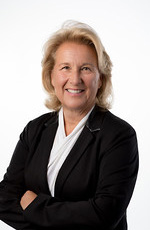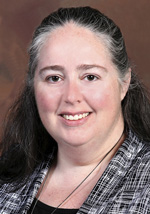Doctor of Clinical Laboratory Science (DCLS): Contributing Quality and Value in Clinical Laboratory Services Delivery
The Doctor of Clinical Laboratory Science (DCLS) is an advanced practice healthcare practitioner dedicated to increasing the value of diagnostics through consultation as members of interprofessional healthcare teams and conducting research focused on evidence of the impact of diagnostics on healthcare outcomes. As a member of interprofessional healthcare teams, the DCLS contributes by providing consultation to assure quality & value improvement in utilization and delivery of laboratory services. Consultation occurs in a variety of setting as described in the Diagnostics Consultation Model©. Case examples will demonstrate the value of the DCLS consult to quality patient care, safety, laboratory utilization and cost outcomes.
Originally presented on August 28, 2019, in Salt Lake City, Utah.
Lecture Presenters
 | Nadine A. Fydryszewski, PhD, MS, MLS(ASCP)CM Professor and Vice Chair, DCLS Program Director, Department of Clinical Laboratory and Medical Imaging Sciences |
Dr. Fydryszewski is Professor and Vice Chair at Rutgers University, School of Health Professions, Dept. of Clinical Laboratory and Medical Imaging Sciences. She is the Program Director of the Doctorate in Clinical Laboratory Science (DCLS) at Rutgers University, the first to offer a DCLS program in the United States. Her teaching responsibilities are primarily in the clinical laboratory science graduate programs. Dr. Fydryszewski is a member of several professional organizations and an active member of the American Society for Clinical Laboratory Science (ASCLS) having served in leadership positions at the state, regional and national level, including the national DCLS Oversight Committee as member and chair, and an elected member of the Board of Directors. She has been invited to present about the DCLS at numerous professional meetings including the International Federation for Biomedical Laboratory Science-Germany, Asia Pacific Conference of Biomedical Laboratory Science-Taiwan, Croatian Biomedical Laboratory Science Congress, Biomedical Laboratory Science Nordic Congress, Norway, and numerous national, regional, state presentations.
 | Brandy Gunsolus, DCLS, MLS(ASCP)CM Pathology Utilization Director |
Dr. Brandy Gunsolus received her BS degree in Chemistry from Southeastern Louisiana University, a BS degree in Clinical Laboratory Science from LSU Health Sciences Center, New Orleans, an MS degree and Doctor of Clinical Laboratory Science degree from Rutgers University. She oversees Pathology Utilization, the Special Testing Laboratory, and is the Physician/Laboratory Liaison at Augusta University Medical Center. Dr. Gunsolus serves on the Doctoral Review Committee for National Accreditation Agency for Clinical Laboratory Science, the American Society for Clinical Pathology Choosing Wisely ad hoc committee and is the American Society for Clinical Laboratory Science (ASCLS) national delegate to the Coalition to Improve Diagnosis in Medicine. She is Chair for the ASCLS national Scientific Assembly for Laboratory Administration, Industry, Consulting, Accreditation, and Quality Assurance, Vice-Chair for the ASCLS national Patient Safety committee and President of the Georgia chapter for American Society for Clinical Laboratory Science.
Objectives
After this presentation, participants will be able to:
- Assess the evidence of the need to improve the delivery of clinical laboratory diagnostic services
- Define the Doctorate in Clinical Laboratory Science
- Describe the Diagnostics Consultation Model (DCM©)
- Evaluate the contribution of DCLS consultations related to patient safety, quality patient care, and cost
Sponsored by:
University of Utah School of Medicine, Department of Pathology, and ARUP Laboratories
 Site Search
Site Search






